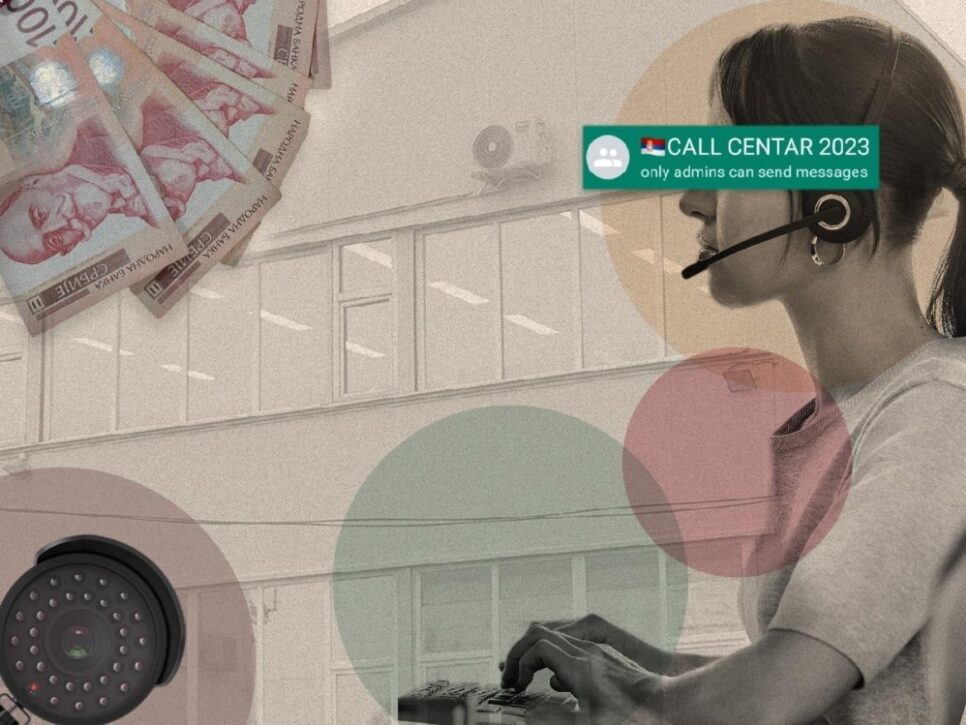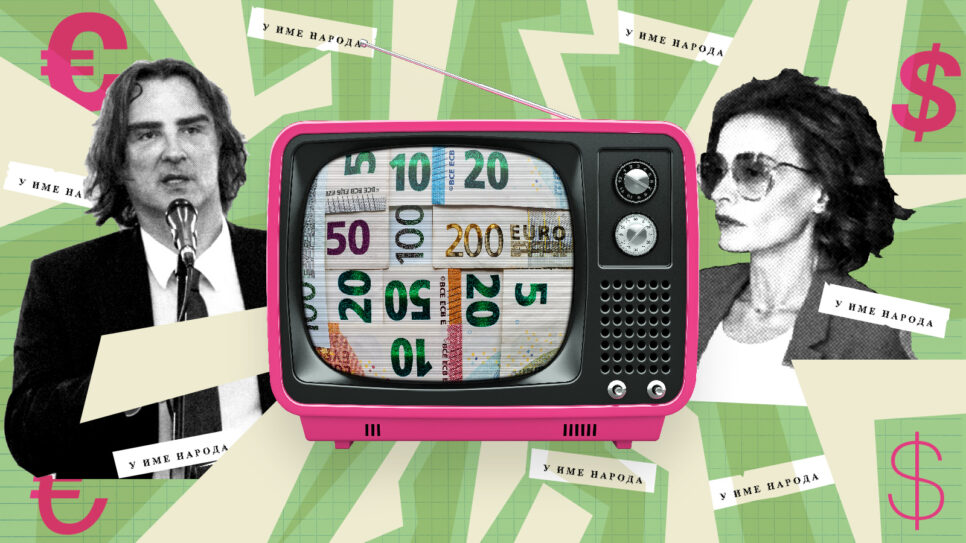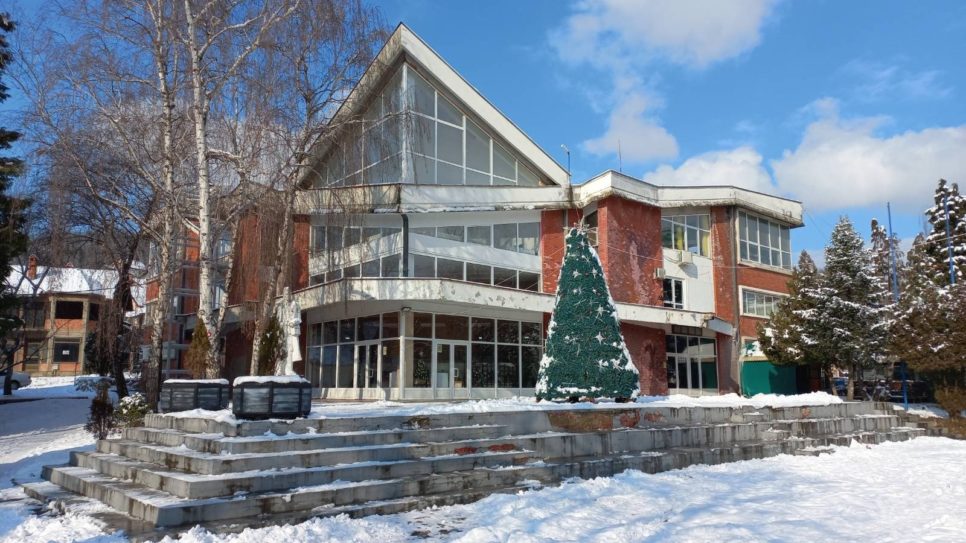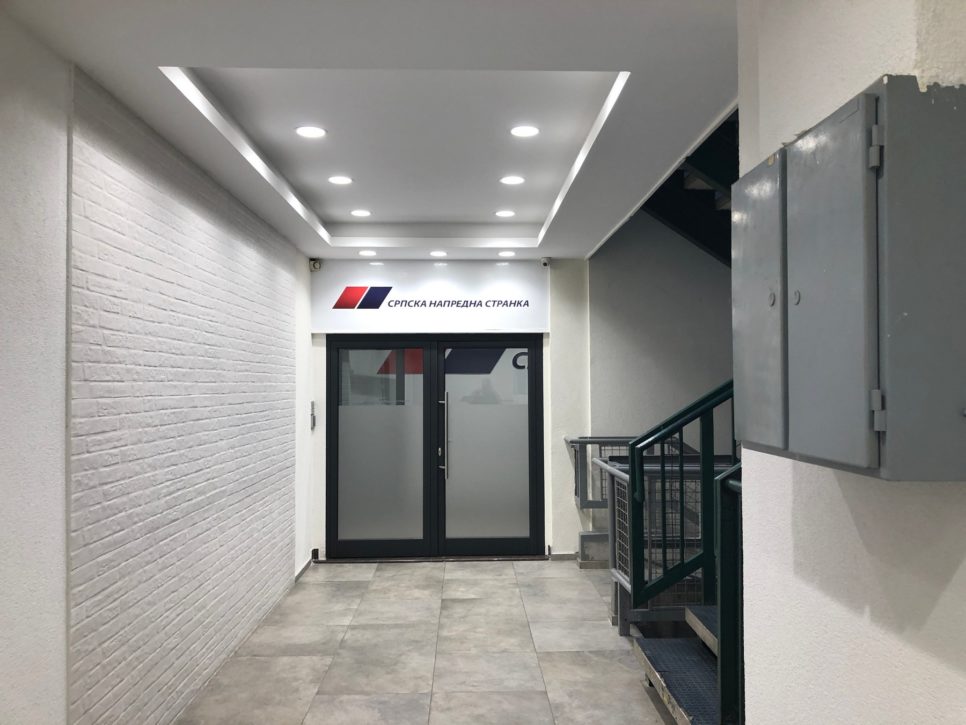Three hours before the start of the pre-election silence in 2022, the program “Aleksandar Vučić – actions speak” began on Pink TV. Serbia’s President and leader of the Serbian Progressive Party (SNS) Aleksandar Vučić entered Pink’s studio straight from a refrigerator, holding a jar of pickles. For almost two full hours, during prime time, Vučić and his associates presented the “closing arguments” of their campaign.
During this time, the words “paid promotion” appeared in the upper left corner of the screen on several occasions.
In the previous two election cycles, the Serbian Progressive Party had paid to appear on Pink in slots that far exceeded the time permitted by the Law on Advertising. In fact, according to this law, any advertising on commercial television longer than 12 minutes during a period one hour is prohibited.
Because of this, the Regulatory Authority for Electronic Media (REM) filed misdemeanor charges against Pink, but it remains unknown why SNS continues doing the same.
CINS’s investigation reveals that, by buying time slots instead of regular promotional videos, the ruling party found a much cheaper way to advertise ahead of elections. SNS’s savings thanks to this move amount to more than 2.8 million EUR (over 330 million RSD), according to the contracts, invoices and price lists obtained by CINS.
The Anti-Corruption Agency, whose task is to monitor party financing, did not look into the prices at which advertising space was purchased during campaigns. On the other hand, experts on the financing of political parties have told CINS that the Agency should have investigated this.
Tamara Skrozza, member of the Complaints Commission of the Press Council, points out that the purchasing of advertising space at preferential prices renders the democratic process meaningless.
“Preferential advertising space during prime time is an indication that we have an unfair competition heading up to the election.”
Skrozza also explains that due to the preferential price, people tend to passively start seeing those who spend more time on TV as the only possible option.
Advertising space at a 75% discount
In election times, parties mainly advertise on TV through promotional videos. They introduce themselves, their candidates and call on people to vote for them, and the duration of these videos is usually about one minute or less.
Any advertising that lasts longer than 12 minutes during one hour is prohibited. This also includes so-called paid promotional slots – the time provided for the broadcast of party meetings, special shows and the like – which can last longer than an hour.
However, SNS used them to a large extent during their self-promotion. During the 2020 and 2022 campaigns, they had a total of five and a half hours of paid promotional slots on TV Pink, most of which were during prime time.
Documents obtained by CINS reveal that the average price per second of these illegal promotional slots was 75% lower than the average price of regular advertisements. In this way, SNS managed to “save” over 2.8 million EUR on TV Pink alone.
The market logic should be that TV channels try to earn as much as possible, so the question arises as why they would give such favorable prices for paid promotional slots, which were, among other things, also broadcast during prime time.
Skrozza explains to CINS that there is an inextricable link between the media and political parties and that if they don’t make money from advertising space, they make money in some other way.
“What we can see and what is very clear is that Pink is breaking media laws day in and day out, probably other laws as well, but has never been sanctioned for anything.”
Apart from Pink, REM also filed complaints in relation to paid promotional slots against Prva and Happy, but there were fewer such time slots on those TV channels than on Pink. On the other hand, in addition to SNS, the Socialist Party of Serbia (SPS) and the NADA coalition were also parties that used this type of promotion, according to a report by Transparency Serbia.
We asked these TV stations why they enabled parties to have paid promotional slots, even though this is not permitted. Also, since REM labeled those slots as advertisements, we also asked why they charged lower prices for them. However, we did not receive a response from Pink or Prva, while the Director of Happy television, Aleksandra Krstić, who signed the contracts with the parties, told us that she does not give statements to the media.
Paid promotional slots or donations?
CINS previously reported that SNS and other parties advertise through paid promotional slots, even though they are illegal. After that, REM filed misdemeanor charges against them. In the case related to the 2020 elections, the statute of limitation has expired, while the case regarding the 2022 elections is still ongoing.
Given that this kind of advertising is illegal, REM labels paid promotional slots as regular advertisements. According to Nemanja Nenadić from Transparency Serbia, because of this, there is reason to view the charging of paid promotional slots at a lower price than that for broadcasting pre-election videos as a non-market discount, i.e. as a donation to a political party. He adds that the Agency should have investigated this.
Vladimir Tupanjac, a lawyer who once worked at the Anti-Corruption Agency’s Sector for the Control of Financing of Political Activities, says that the Agency should initiate a procedure in which it will decide whether the Law on Financing Political Activities has been violated. If it has been violated, the Agency can impose a warning measure or file a misdemeanor report.
He also notes that, if it is determined that this was a donation, then the party itself should have reported this.
According to the response that CINS received from the Anti-Corruption Agency, this institution does not carry out oversight of the prices themselves, but only compares whether data from different sources match. When asked on the basis of which it investigated SNS advertising costs on Pink in 2020, the Agency listed its sources:
“In addition to contracts and invoices, during its oversight procedure, the Agency obtained and used data it received from commercial banks, the Treasury Administration and other state bodies, political entities and service providers”.
Also, the oversight report for the 2022 campaigns reveals that the Agency used the very same sources.
Nemanja Nenadić also says that in earlier election processes, the Agency had relied, for example, on the data it received from REM, which records only the amount of advertising on certain media outlets, but does not monitor the financial aspect of advertising. As a result, Nenadić adds, the Agency could not have carried out full oversight of campaign financing.
“Based on this, the Agency could only determine whether a party failed to report the fact that it advertised on some TV channel, but not whether it reported everything it should have.”
Pink's 71% discount
[Note: This article was amended on June 19 at 11:15. The sentence “Apart from Pink, due to the leased time slots, REM also filed complaints in relation to paid promotional slots against Prva and Happy, but these were to a much lesser extent than on Pink”, was changed to make it clearer that there were fewer paid promotional slots and now reads “Apart from Pink, REM also filed complaints in relation to paid promotional slots against Prva and Happy, but there were fewer such time slots on those TV channels than on Pink.”]





What do you think